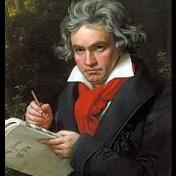Leaderboard
Popular Content
Showing content with the highest reputation on 01/31/2022 in all areas
-
Written as a birthday gift for my friend last year, Two Poetic Pieces is my interpretation of two of her poems (shown in the back of the score). This piece was re-recorded by Usman Anees this last week and I wanted to share it with all of you. Please let me know some of your thoughts. Score: https://drive.google.com/file/d/1sjr8QTGdaE2fRjDvWZn9Wd0mSQXntz4t/view?usp=sharing Audio:1 point
-
Now this is a good topic Yes Electric guitar, acoustic, tin whistles, recorders, a piano I have from the '70s, and of course a MIDI controller and virtual instruments 100% of the time. Everything I write was played on an instrument in meatspace first. Bruh, I have literally thousands of dollars worth I've got over the last 15 to 20 years. Off the top of my head I have Era II Medieval Legends + Vocal Codex, Symphonic Orchestra, Cinebrass, Cinewinds, Cinematic Strings 2, Nexus 2 + a lot of expansions, Orchestral Essentials, Amplesound Bass, Manda Audio Drumkit, Apocalypse Percussion, various free libraries, and a bunch of others I'm forgetting right now. It really depends. Some instruments like percussion and bass are fine as virtual instruments and I find Era really does the Medieval instruments very well. Some instruments, particularly reed instruments and the orchestra (especially soloists) are very difficult to capture all the techniques and timbre and never really sound truly authentic. However I will say, there is a difference between something sounding "good" and something sound "real". Sometimes, something doesn't sound real but it sounds great for the context. I love synth brass and a lot classic Romplers from the '90s, so although that flute isnt' going to fool anyone that it's "real", it still sounds awesome. BUT this is the flipside of the whole thing. I really do like recording real instruments. When you are going for "real", at least where the most stand-out elements of your piece are concerned, you're never going to beat the real thing. There's also this magic of when you send some sheet music or a midi performance to a musician and you get it back and you hear how the player imparted their own identity onto the line. They through in these little flourishes or had a particular way of accenting some note that only they could think of. It really creates this vibe of listening to your own music for the first time, even if you've listened to the mockup a million times. Already have, and I just got a sax player with 40 years experience to record the tenor sax on my latest piece over in the pop/jazz/rock section of the forum. I got my start playing in rock and metal bands, I've had other guitar players play on my tracks, etc. Next project I think I might hire a live string player and have them do several passages of the same line so it recreates the sound of a full string ensemble. My final thoughts on this: I really do recommend getting live players on your tracks at least some of the time; if not because they can take your music to the next level, IMO every serious composer should aim to understand the instruments they are composing for even if they are virtual. I also really recommend every composer master at least one instrument themselves. It will be difficult to get musicians and clients (if you want to do it for hire) to take you seriously if you don't.1 point
-
I try to not perform my own music. Instead, I just use the generic instruments on something like sibelius to get a general idea of what's going on, then I'll get people to actually perform the music, if I think it's good enough. Music that's not actually played live by a human (that isn't obviously electronic stuff, etc) isn't really "done" to me. I need to hear it in actual reality for me to have any closure with a piece.1 point
-
If it's Solo, yes. If I had a finished piano concerto, I would probably perform that as well. Piano, because that's the only instrument I'm good enough at to perform on. Of course. Does improvising musical ideas for my compositions count? If so, yes. Yes, that's a big part of my compositional process right there is improvising musical ideas. And, even if the initial improvisation isn't that good, I can still find motifs to develop into a theme that is good. I use Musescore's default soundfont in combination with my piano improvisations. I'm somewhat satisfied. Not fully of course, like col legno(or the lack of it, I should say) is one thing I'm unsatisfied with because sometimes, I come up with a musical idea that works best with col legno. The closest I can get in Musescore is accented pizz, which is not at all the same sound. They are both more percussive than staccato, yes, but other than that, they are totally different. No, especially not for instruments that aren't Piano, Harp, Harpsichord, or any sort of pitched percussion(If I use percussion, I tend to use pitched rather than unpitched, that's why I said that). Woodwinds get like maybe the closest of the other instruments to true performance, but only because I wouldn't expect any sort of notation software or even a DAW to get the true sound of something like multiphonics or some other rarely used advanced woodwind technique across. Brass, a bit further away. Strings the furthest from true performance because of lack of string distinction(i.e. there is no Sul G, Sul C, etc.) and several string techniques that are notated all the time(sul tasto, sul ponticello, col legno just to name a few). I only have a few like Staccato(of which I only have a staccato setting for it, I don't have Spiccato or any of the several other bowing techniques that are also notated with staccato dots), pizzicato, harmonics, and of course accent marks, but that's getting more into dynamics. Which brings me to another point, the dynamics don't follow the true dynamic curves. In other words, a flute note marked fortissimo and the same note with the same marking at the same tempo on a violin staff will sound identical in intensity, when in reality, they don't sound anywhere close to identical. The violin is intrinsically more intense than the flute and dynamics in a good quality notation software in my opinion should reflect that. And even for just the flute itself, if it's lower than C5, forte is relative and not absolute, because it can't reach an absolute forte in the low register. An absolute mezzo-forte is as loud as it gets, so forte would imply "Play the piano dynamic before it quieter than you otherwise would" for low register flute, I think. I've thought about it, but I don't even know where I'd start if I wanted to contact the musicians. Like, if I wanted an orchestral performance, since the Columbus Symphony Orchestra is the closest orchestra to my house, would I go to the Columbus Symphony Orchestra website and contact them via email or what? And what about chamber groups like string quartets and woodwind ensembles? What about a single soloist for like a Flute Sonata or whatever? I do have a group of friends who I told about my compositions including my orchestral compositions. Not musician friends, just regular friends. We have these monthly in-person reunions and weekly video chats, me and my friends. And at one of the in-person reunions, one of the facilitators, who is also a friend of mine, said something about getting an orchestra at one of these reunions so that they can play my orchestral pieces. That would be so amazing if it ever happens, but until then, I'm basically in the maze that is trying to find musicians to contact on the internet and figuring out whether to email them or call them or whatever. Haven't found my way through it yet, so I don't have any performances, yet. And as for piano performance by me, well, it's been years since I last performed publicly as a pianist. I had this jealousy thing happen with my piano teacher because I was progressing faster than probably any of her other students, which, although in my first year, was a positive thing, made me learn my favorite Mozart pieces sooner, by the time my second year came around and I felt ready for Chopin, it turned negative on me and that was the last year that I performed publicly. Ever since then, I've only ever done private performance for like family and close friends(Well, that's not entirely true, I did perform once several years ago at a hospital, but even then, it was for my grandparents that I performed, any public listening that weren't family members was just a bonus). And I have no idea how to get back into it, because the place I used to perform as a pianist went out of business, and I don't know of any other place except my college that has piano performance. And I have no idea if I have to like be in a certain class or if anybody who plays music can perform regardless of what class they are in, because I have never thought about doing like a piano recital at my college. Plus, I get really nervous performing around people I don't know, like "What if I make a mistake? Everyone will hear me do it, not just myself or my parents. I know I can play it mistake free, I know I'm capable, but I know stress can lead to mistakes and this sort of situation is stressful".1 point
-
Hi Atlantis, thank you very much, I hope this kind of music can help you out copping with anxiety and ease your mind when dealing with panic... best to you!1 point
-
I like it. It's a nice exercise in counterpoint. I'm no expert on the rules relating to this as it's something I learnt years ago. What I really loved were the syncopated bits around bar 18 et seq. You could use that more, it was really nice. It put me in mind of "Bach Goes to Town" by Alec Templeton and maybe "Handel in the Strand" by Percy Grainger. Do you know them? They're really great. Hope this helps. You've only been composing for a relatively time but keep at it. I'd like to hear more.1 point


